Now, more than a year into the COVID-19 pandemic, there are hopeful signs of economic recovery in the U.S. Of course, recovery means very different things from one person or family to the next. Personal finance is just that – it’s very personal.
Just as mental and physical wellness are important to experiencing a happy, healthy life, so, too is financial wellness. We expect financial wellness to be a major theme in American life as our society heals in so many ways over the coming year. Given that, we recently conducted a survey of 2,052 Americans to understand their awareness and experience of financial wellness, their feelings about the future, and their participation in personal finance trends like the recent retail trading boom.
We began by asking people how they expect the economy to rebound in 2021. Make no mistake, people are on edge: 71 percent of Americans say they are somewhat or very concerned about the economy. Additionally, 47 percent report that they have no formal savings plan, and one in three say they spent more than they earned in 2020.
While that all makes for a dismal picture, there’s good news, too. Just 20 percent of Americans rate their financial wellness as “bad” and “very bad” right now; but 52 percent rate it as “good” and “very good.” This suggests that people may not be exactly where they want to be, but they’re forging good financial habits.
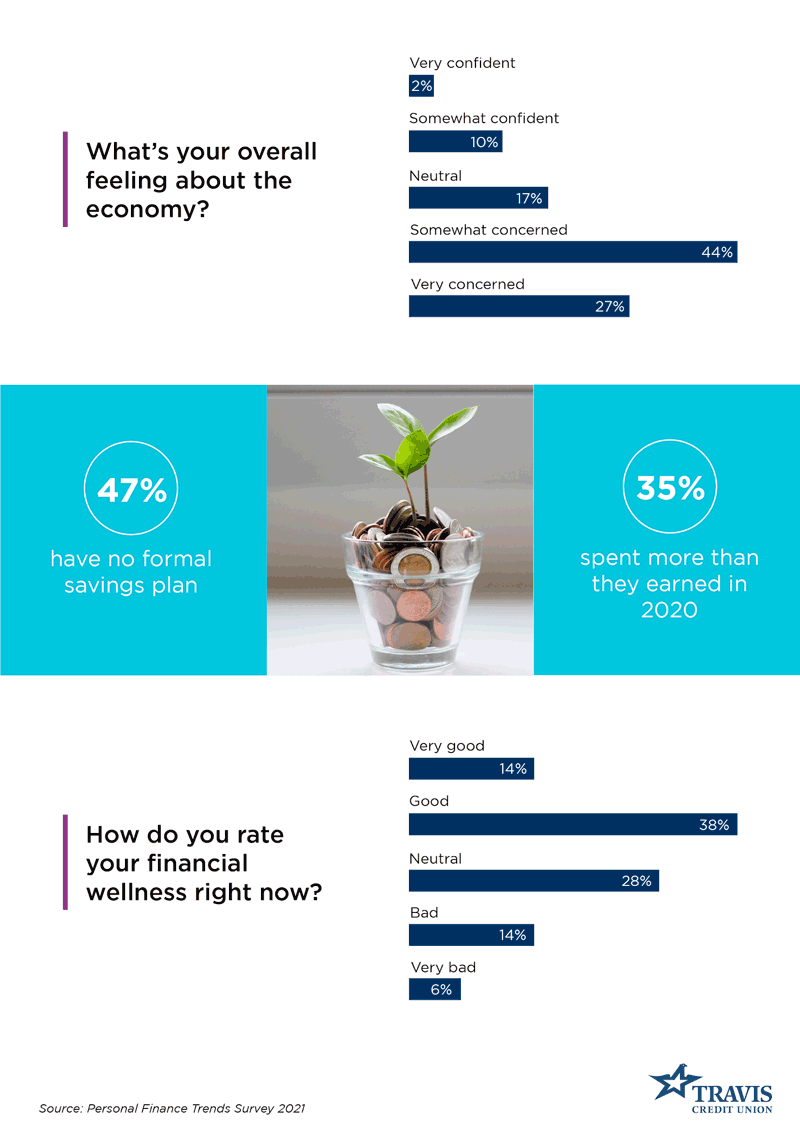
While 2020 was a tough financial year for millions of Americans, many still found ways to improve their financial health on terms they could control. For example, 58 percent say they increased their savings in the past year. That’s no surprise, given the limited options for spending money during the pandemic.
Along with good financial health habits comes a nice dose of optimism: 57 percent of people we surveyed believe their financial situation will be better by the end of 2021. Another 28 percent believe it will, at least, be the same (not worse). In any case, people are conscious of financial health. In fact, we found 63 percent think about their financial health more often than their physical health.
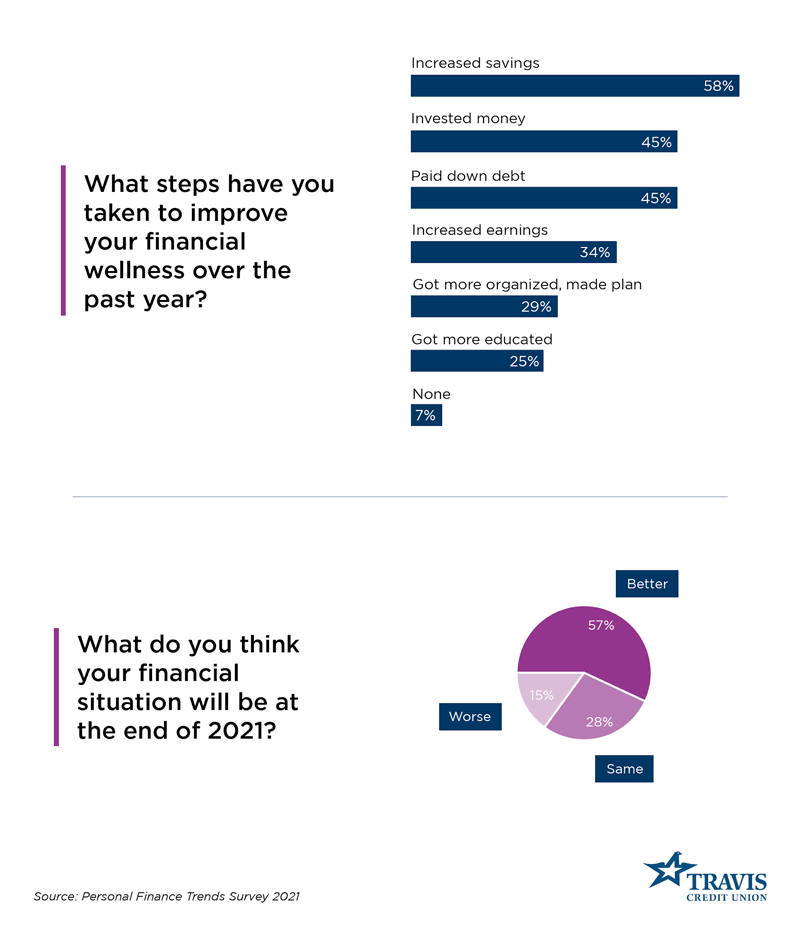
One of the things that buoyed Americans financially this past year was stimulus checks. We asked people how they put these checks to use. Among the top responses, 34 percent said they paid bills, 31 percent put the money in savings and 19 percent invested the money in the stock market. And, notably, a very generous one percent donated their money.
In thinking about financial health and wellness, we know people are sensitive to perceptions of others’ wealth and how they measure up. To this end, we asked if people find that social media makes them feel insecure about how much money they have. Fifty-four percent of millennials and 64 percent of Gen Z said yes, they feel insecure about money because of social media.
We found more than half of the people we surveyed (56 percent) say they were not well-educated about personal finance while growing up. However, many are making up for lost time and getting educated. We asked respondents if they could name any financial experts off the top of their head and 37 percent were able to. The top names cited were Dave Ramsey, Suze Orman, and Jim Cramer.
When we asked where people get most of their personal finance guidance, it was essentially a tie between social media, traditional media, and friends and family.
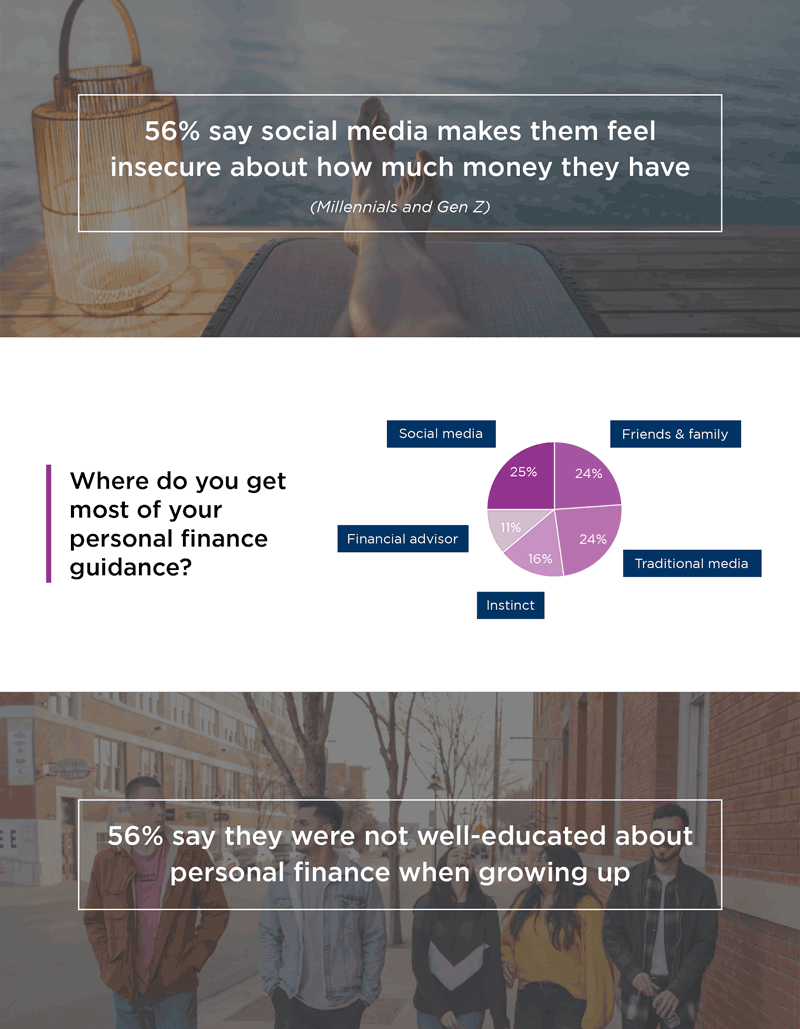
One personal finance subject that can’t be ignored this year is the boom in retail trading, particularly trading done on popular no-fee trading apps like Robinhood. While we always advise consumers to invest their money under the formal guidance of professional, experienced financial advisors, we’re aware of this cultural shift in retail trading and were curious to investigate the trend.
One thing that’s undeniable, the retail trading movement is very popular as far as public opinion goes: 57 percent think it’s “great,” versus just 10 percent who find it “problematic.” One in three say they don’t have a strong feeling, either way.
Among those we surveyed who engage in retail trading via apps, a decisive 80 percent said they feel “empowered” by the process. Also interesting, many are new to the experience—57 percent say they started within the last year.
Most people have funded their accounts with what they describe as “extra spending money,” and more than half have invested some or all of their savings in the market. That said, it’s important to keep in mind that many are not making relatively large investments via these apps. One in four have invested less than $500, and another 44 percent have invested less than $5,000.
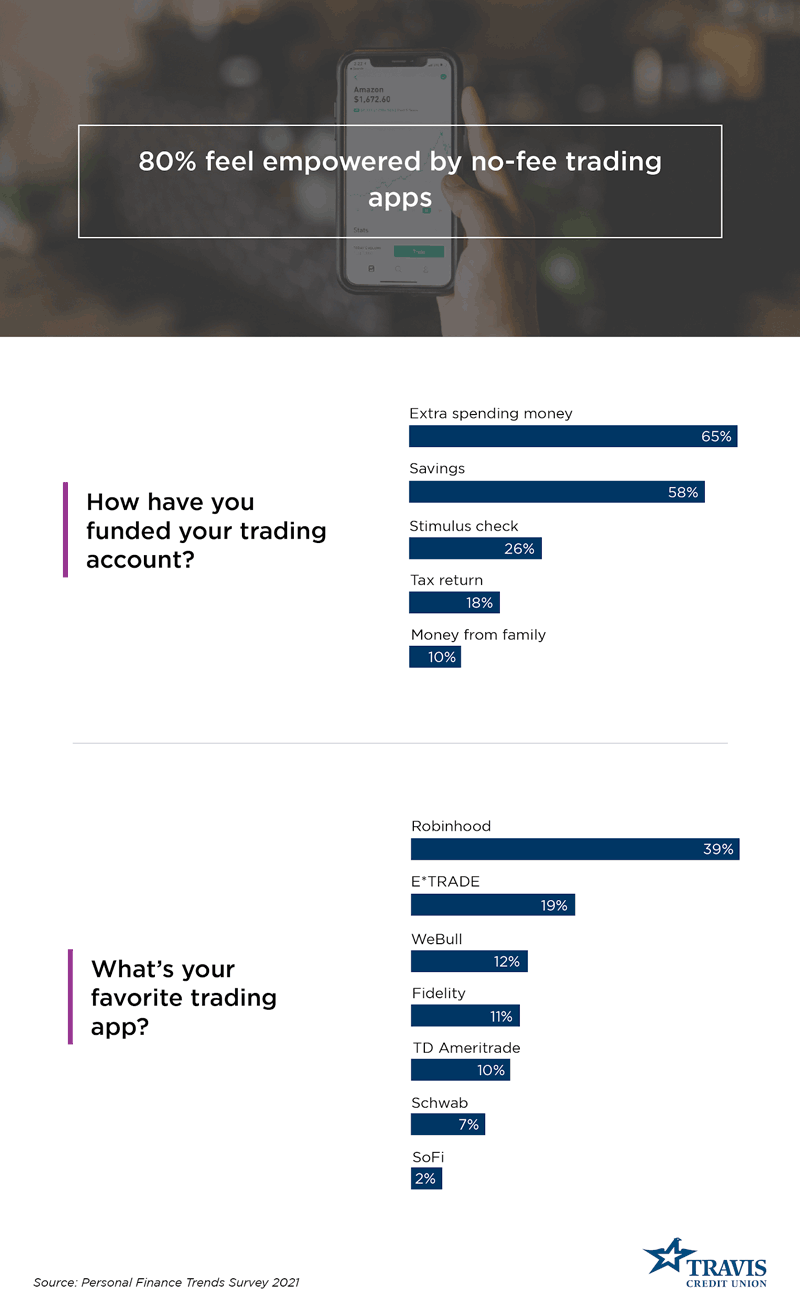
How well-educated are these retail traders, financially? Most describe themselves as “somewhat” educated on investing strategy, but alarmingly, one in four who trade daily say they have “little to no” education. Of course, most aren’t trading daily. Forty-nine percent tinker with their investments monthly or less, 40 percent do so weekly, and just 11 percent trade daily. That said, 56 percent report checking their app daily, while another 32 percent say they check weekly.
How did people make out in the bull market of 2020? For the most part, pretty well—a majority (51 percent) report they “made a little money,” while only five percent say they lost “a lot of money.”
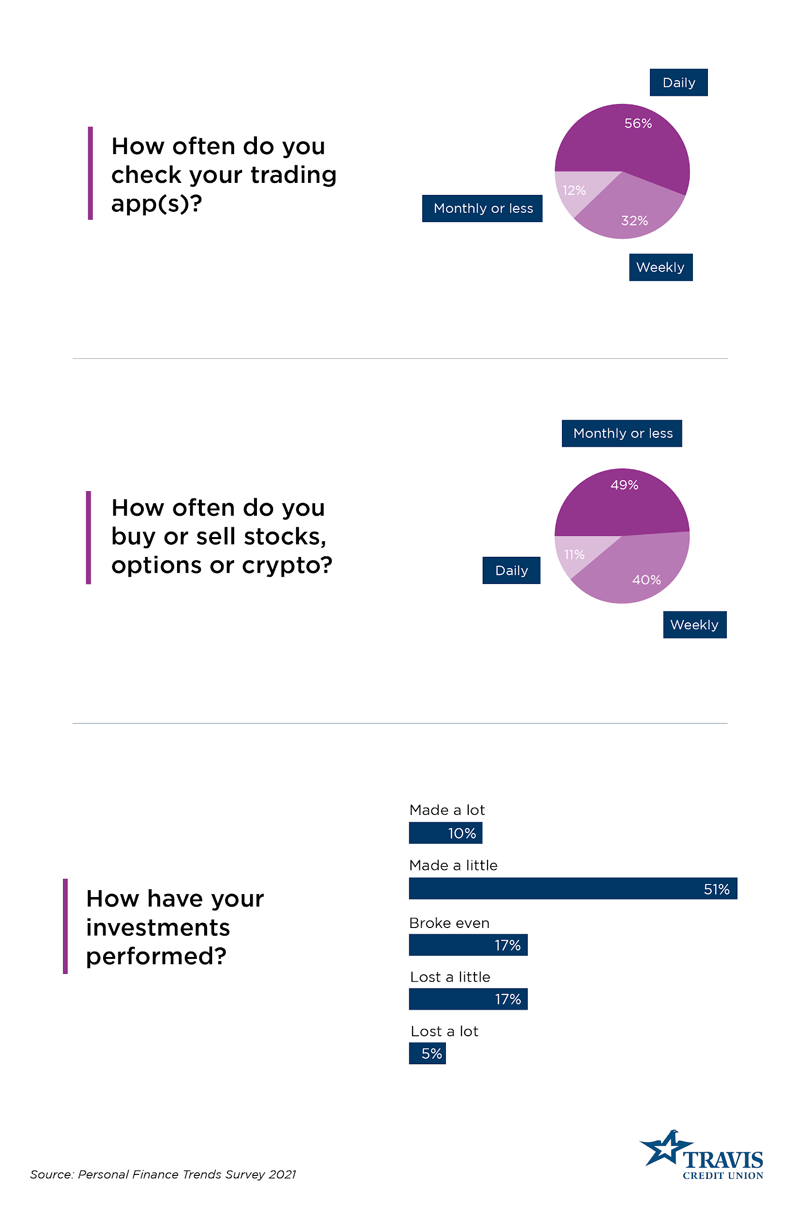
Finally, we asked where people get their stock buying tips and advice. Given that there was recently a congressional hearing on this very subject, we figured it would be interesting to inquire about. Sixty-two percent say they favor social media over traditional media, and of all social platforms, Reddit is the most popular for stock tips. Seventy percent of retail traders say they’ve used it for guidance.
Of course, in our experience, if you’re looking for safe, reliable, long-term savings and financial wellness, nothing beats having a true professional at your side.
Methodology: Between February 15 – March 2, 2021, we surveyed 2,052 Americans on various topics related to personal finance. The gender distribution of our respondents was 48 percent female and 52 percent male, with an average age of 38 years old and an age range of 18 to 70 years old.
For media inquiries, contact media@digitalthirdcoast.net.
Fair Use
Feel free to use this data and research with proper attribution linking to this study. When you do, please give credit and link to www.traviscu.org.